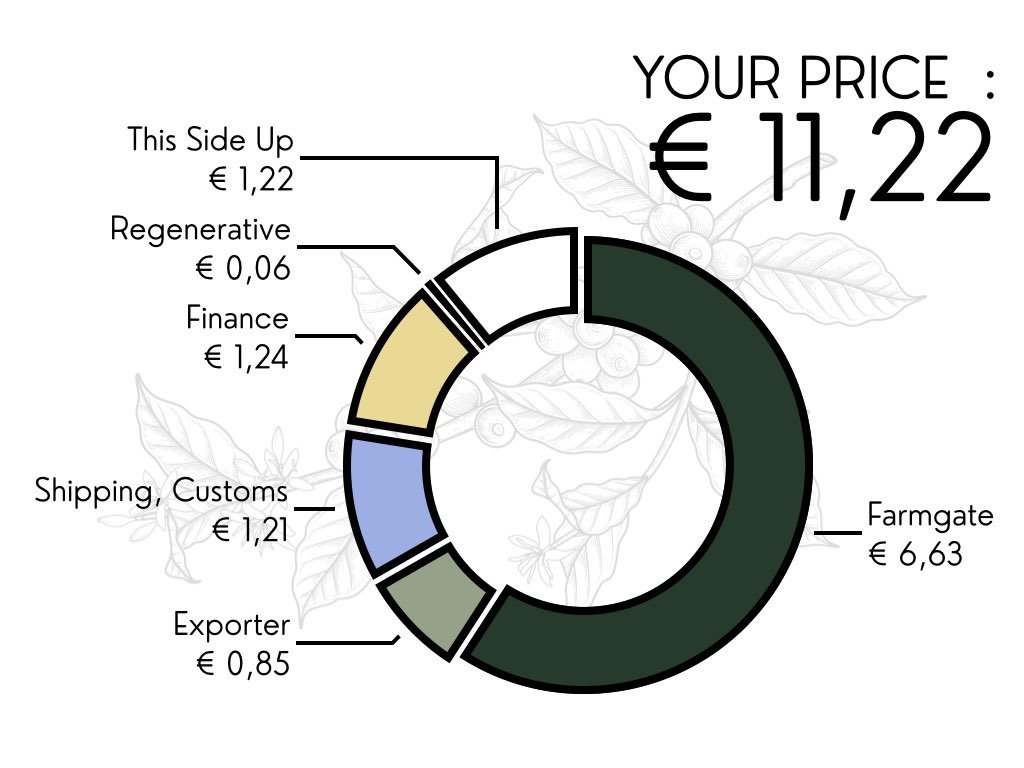coffee is the best teacher
Aranga coffee group's success is synonymous with being proactive and determined to develop a transparent and democratic governing system. The members – now 28 in number – are true artisans of their coffee and drink it themselves, which is a rarity for the East African region, outside of Ethiopia. Aranga members are subsistence farmers. Formally registered in 2002, the group enshrined weekly meetings to keep all members informed of the group’s business doings, make decisions collectively, and meet with a local agronomist to learn improved farming techniques. Over a decade later, these investments have paid off.
In the last few years of producing and selling high quality coffee , one of the key areas of progress has been seeing farmers achieve economic growth. This higher economic growth is a result of direct trade coupled with higher prices as well as stable access to the market.
In their community, they pioneer in empowering women to take up coffee farming as a means towards economic independence. They invest in the younger generation to become enthusiastic about coffee farming via several initiatives including distributing coffee seedlings at a discount price. They also have a 'back to school', an informal program that allows for learning in detail each week about different aspects of things from bean to cup.
Their practical limitations currently include access to market information as well as infrastructure. These limitations are also the opportunities they seek for their future. Going in depth with coffee processing methods, finding access to finance a central processing unit and continuing educating themselves as well as the other.
Aranga boasts some of the best coffee to be found anywhere in Tanzania and has a remarkably successful and transparent business.
CULTIVARS
Arabica Bourbon (Jackson, Mbirizi) and Kent
elevation
1,450 - 1,700 meters above sea level
NOTABLE
local organic certification (since 2016) by the Tanzania Organic Agriculture Movement (TOAM), shade-grown, farmer owned and farmer-run cooperative, actively seeks participation of women in coop activities. Currently they have 13 youth members who are active with the group growing coffee.
PROCESSING
Double wet fermentation: Cherries are depulped using a simple hand pulper and strictly washed the same day they are picked. They are then double wet-fermented (2x 18 hours), shade dried, and then sun dried on raised beds.
-
The price you pay for Aranga washed grade 2 coffee p/kg. We agreed on this price directly with the farmers, disregarding the volatile US Coffee C price.
-
Here the farm gate is what the farmer gets for delivering the cherries to the Central Processing Unit owned by the Aranga group. This sum is inclusive of what the farmer and group gets for delivering green beans to Wanza, the exporter.
-
Wanza is responsible for a number of activities between the coffee at origin to Rotterdam. This fee per kg includes their salaries, farmer training and development fee, Business expenses that include travelling to visit the farmers, local taxes, Warehousing, Sampling as well shipping to the nearest port for export
-
International shipping from Dar es Salaam to Rotterdam, Netherlands. It is inclusive of freight, customs, insurance and warehousing costs.
-
Average financing cost owed to (mostly social) lenders. This ensures immediate payment to the farmers when the coffee leaves the farm or port. It also includes storage, risk fee, storage and profit
-
A standard TSU premium on all coffees designated exclusively to accelerate farmers’ own regenerative agriculture project
-
This Side Up compensation for spending time and resources importing this coffee. Our work includes year-round contact with producers, managing export, shipping, import, warehousing, grading, sampling, finding and keeping roasting partners for Aranga. € 1,22 is This Side Up’s Model 1 markup. For a full overview of our modular margin construction, see the Trade Models page.
It is worth noting that coffees have a different price since we are trying out different grades for the first time this season. And even though the farmers were paid the same farm gate for the all grades, in reality the differences can be taken from the TSU margin.
CONTACT WANZA
Wanza can be reached by email or by phone. Rebecca or Frank are also happy to have visitors to show around their coffee farms and host in their village, close to the city of Arusha and to numerous national parks
TEL +1 (615) 200 9209 / +255 713 838 181
EMAIL mlayff@gmail.com/ wanzacoffee@gmail.com
Photo gallery
You may use these images freely to promote Aganga’s coffee amongst your customers.




















